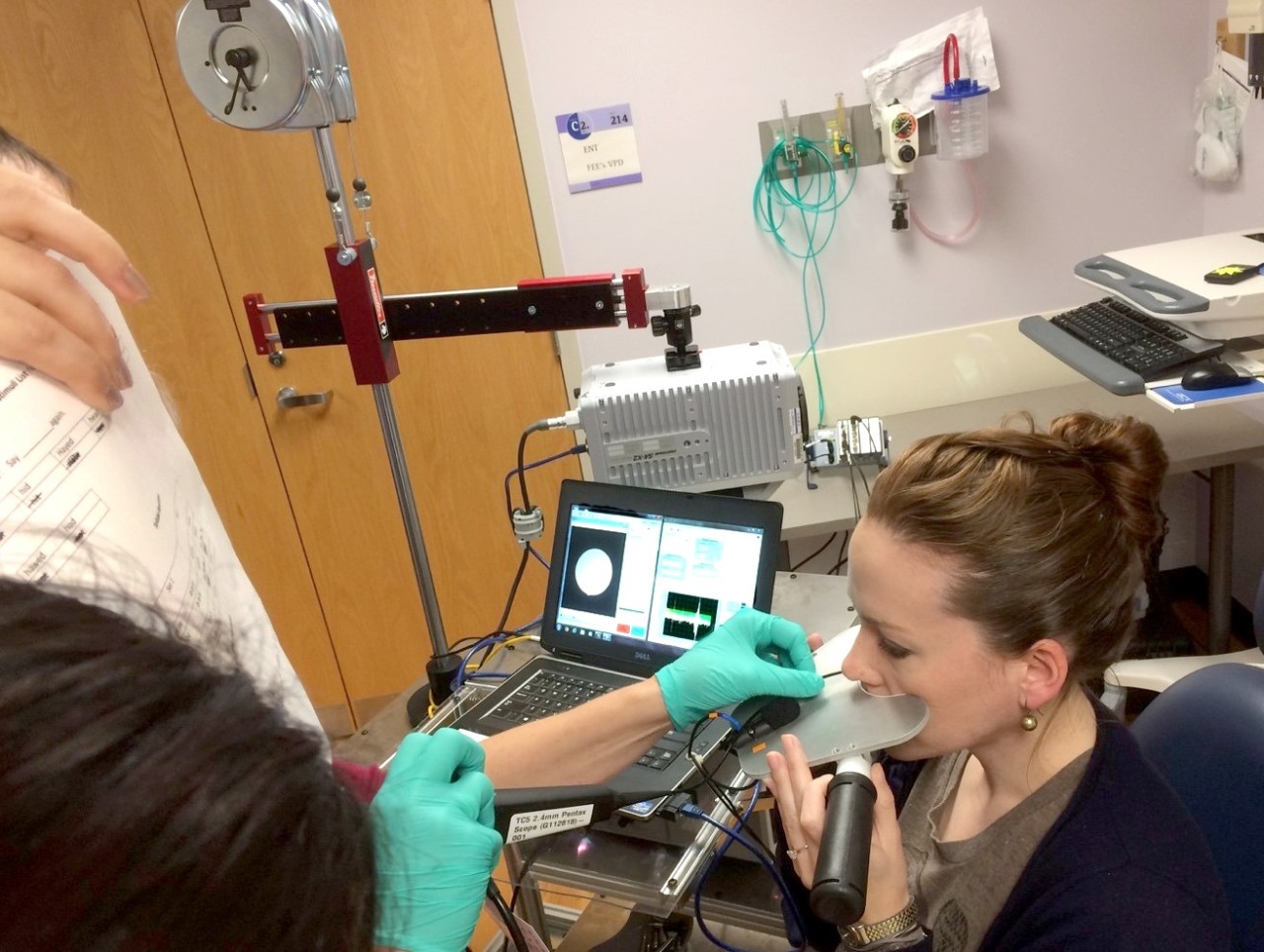
UC researchers use tech to help people with speech impediments
For many, talking comes so naturally that we rarely think about it. But there’s a lot at play when we talk: our lips, teeth and tongues all work together to produce desired sounds. Even our nose plays a part in this routine – pronouncing “n” or “m” rely on coordination between the mouth and nose.
People affected by a structural disorder called velopharyngeal insufficiency (VPI), however, have difficulty properly pronouncing sounds that are supposed to bypass the nose. Researchers at the University of Cincinnati are exploring the effects of VPI in an effort to inform potential treatments. The work is part of a five-year grant awarded by the National Institutes of Health.
This research is some of the first of its kind and reflects UC’s innovative agenda and strategic direction, Next Lives Here.
“We’re trying to tell surgeons what’s going on that affects these people’s speech,” says UC biomedical engineering Ph.D. candidate Michael Rollins. “If surgeons don’t know what’s making that sound in their speaking, then it’s tough to fix it.”
Rollins’ presentation of the team’s work was recently awarded second place in the student poster competition at the Acoustical Society of America meeting in Victoria, British Columbia.
We’re trying to tell surgeons what’s going on that affects these people’s speech.
Michael Rollins, UC Ph.D. candidate
People with VPI have an irregularity between their nose and mouth that affects certain sounds, Rollins explains. As the people send air into their nasal passage to speak, the resulting speech is distorted. There are three hypothesized sound sources that cause the distortion: mucous bubbling, aerodynamic turbulence and fluttering tissue.
“Depending on what’s making the sound distortion is going to inform how you treat it,” says Rollins.
Rollins and the UC team observed ten patients from the VPI clinic at Cincinnati Children’s Hospital using a high-speed video camera and two microphones – one at the nose and one at the mouth. The researchers inserted the camera through the nose and recorded movement, such as from tissue displacement and mucus, in the nasal passage.
Pairing this video with the audio segments, the team determined that most of the patients were affected by mucous bubbling, also known as nasal rustle. In other words, when the patients inadvertently sent airflow to their nose to speak, the mucus in the nasal passage was fluttering, distorting the speech.
“What we saw was that while there’s not much mucus there, it’s dancing in the breeze,” says Rollins. One of the research team members lightheartedly refers to the motion as a “snot ballet.”
If mucus is the underlying cause, says Rollins, surgery may not even be necessary. Rather, blowing your nose or taking an allergy medicine may do the trick.
Rollins is in the process of preparing a manuscript to publish the findings in a journal. After that, he and the team will turn their attention to testing other sound sources that may cause VPI, like aerodynamic turbulence.
For those it affects, VPI has significant impacts on daily lives. With the research being done at UC, clinicians may finally have the data needed to correctly tackle this issue.
Featured image at top: A researcher demonstrates the equipment on an adult. The endoscope enters through the nose and views the oral-nasal passage from above, transmitting a live video of the motion to the computer. Microphones separated by a metal plate record the sound coming out of the nose and the mouth.
Next Lives Here
The University of Cincinnati is classified as a Research 1 institution by the Carnegie Commission and is ranked in the National Science Foundation's Top-35 public research universities. UC's graduate students and faculty investigate problems and innovate solutions with real-world impact. Next Lives Here.
Related Stories
Inflammation, not symptoms, found to disrupt sleep in IBD...
July 9, 2025
Impaired sleep architecture in inflammatory bowel disease (IBD) is primarily driven by inflammatory activity rather than symptomatic flares as previously thought, according to a study published in Clinical Gastroenterology and Hepatology. Sleep architecture is the structural organization of a normal sleep cycle, encompassing the progression and distribution of different stages of sleep throughout a typical night’s rest.
There once was a biologist who talked to spiders …
July 9, 2025
UC biologist and spider expert Nathan Morehouse helped a writing collaboration at Kent University explore our common ground with these eight-legged creatures that fascinate us.
Study traces evolutionary origins of an important enzyme complex
July 9, 2025
MSN highlighted University of Cincinnati Cancer Center research published in Nature Communications that traced the evolutionary origins of the PRPS enzyme complex and learned more about how this complex functions and influences cellular biochemistry.
